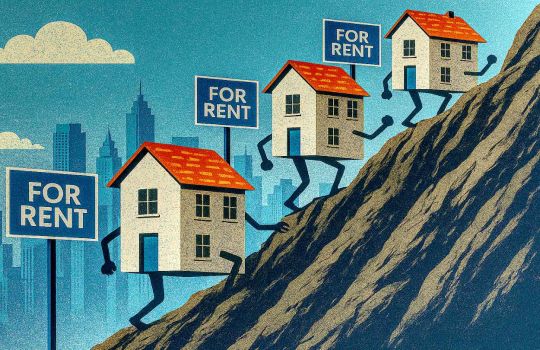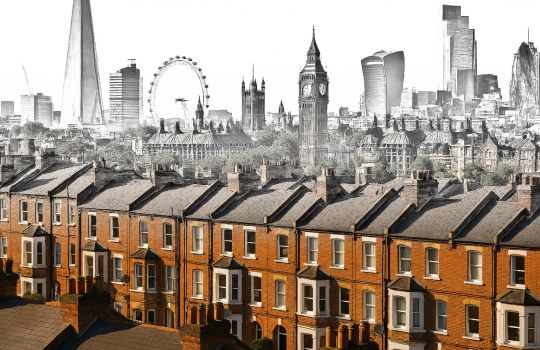Trump Tariff Turmoil?

Donald Trump's recent tariff policy amendments, which primarily focus on imposing taxes on imported goods, will have both expected and unexpected consequences for global markets. While tariffs directly affect trade, their broader ripple effects on international financial systems and investment trends can also impact industries such as real estate. Consequently, it is expected that London's prime residential property market - renowned for attracting foreign investors - may experience a period of uncertainty in the coming weeks or months. FG briefly examines the potential positive and negative consequences of President Trump’s actions on the prime London market.
Positive Impacts:
Increased Demand for Safe-Haven Assets: London’s property market is traditionally seen as a safe-haven for global investors seeking stability. In the face of trade tensions and economic uncertainties caused by tariffs, investors may turn to physical assets like prime real estate in London to safeguard their wealth. This could fuel demand, especially among high-net-worth individuals from regions impacted by tariffs, such as China or the EU.
A Shift in Investment Strategy: As tariffs disrupt global trade flows, some investors may seek to diversify their portfolios away from volatile sectors. The London property market could be an attractive option as its long-term value is less tied to global trade dynamics. The perception of London as a stable and profitable location for investment could be bolstered by the tariff-induced uncertainty in other markets.
Increased Foreign Investment in London: As U.S. companies face higher costs on imported goods due to tariffs, some may look to relocate or expand operations abroad to avoid these additional expenses. This could increase the demand for luxury residential properties in London, particularly in high-end areas like Mayfair or Kensington, where executives and entrepreneurs might choose to relocate.
Potential for Lower Interest Rates: If President Trump’s tariffs contribute to a global economic slowdown, the Bank of England might cut interest rates to mitigate the effects of a weakening economy. Lower borrowing costs could make buying prime residential properties more affordable, especially for buyers using leveraged finance. This could stimulate demand for prime properties in London, particularly in the luxury sector, as wealthy investors seek to capitalise on lower borrowing costs.
Negative Impacts:
Economic Slowdown: If tariffs lead to economic slowdowns, particularly in major economies such as the U.S. and China, the effects could be felt globally. A downturn in global economic activity could dampen the purchasing power of potential buyers for prime London properties, particularly if businesses and individuals experience financial strain due to higher costs of imported goods and trade barriers.
Currency Fluctuations: Tariffs could result in shifts in currency values. For example, if the U.S. dollar weakens in response to tariff-related trade tensions, American investors may find London’s property market less appealing due to unfavourable exchange rates. This would make it more expensive for foreign buyers to invest in London real estate.
Trade Impact on Construction and Development: The cost of construction materials may rise due to tariffs on imports from countries like China, which supplies a significant amount of raw materials used in the construction industry. This could lead to higher costs for developers in London, potentially slowing down the development of new luxury properties or increasing the prices of existing prime real estate.
Possible Outcomes:
Market Resilience: The prime residential property market in London has a history of resilience even in times of economic uncertainty. While short-term volatility might occur, the long-term outlook could remain strong, particularly for areas with international appeal. Wealthy buyers from diverse markets may continue to view London as a strategic investment, shielding the market from short-term disruptions caused by tariffs.
Shift in Buyer Demographics: Over time, we may see a shift in the demographics of buyers in London’s prime property market. As trade tensions affect some regions more than others, new buyers from emerging markets or other wealthy nations might increase their stake in London real estate, leading to changes in the geographic origins of property investors.
While Donald Trump's tariffs could lead to some short-term instability in the global economy, they may also fuel demand for London’s prime residential properties as investors seek stability in uncertain times. However, the overall impact will depend on the magnitude of the tariff policies and how they affect global economic dynamics, particularly in trade-dependent markets.














